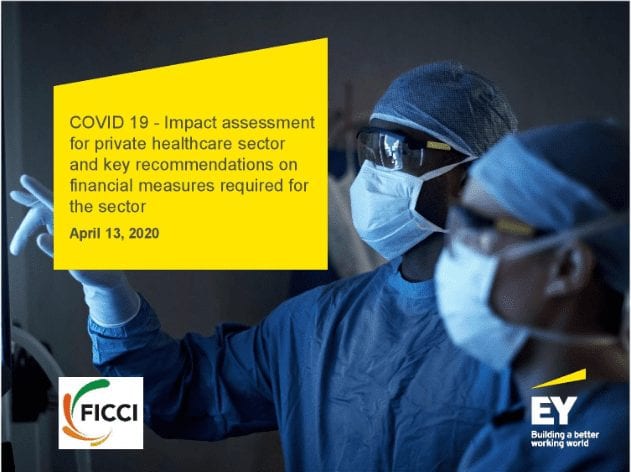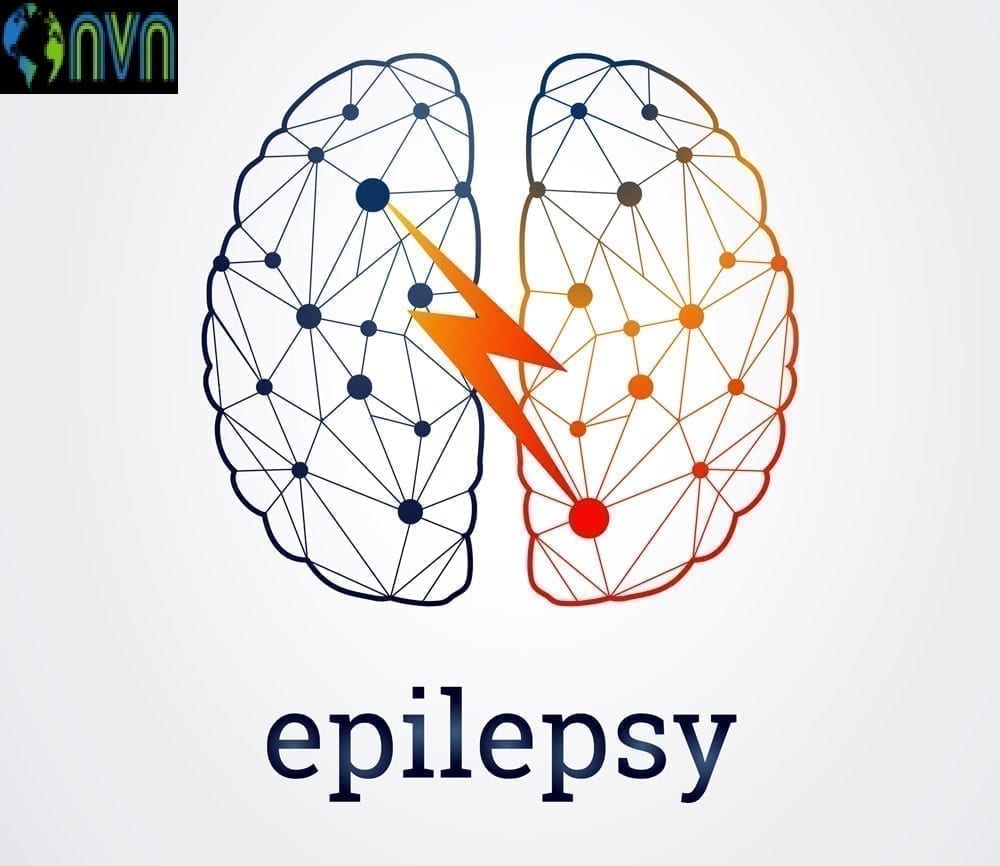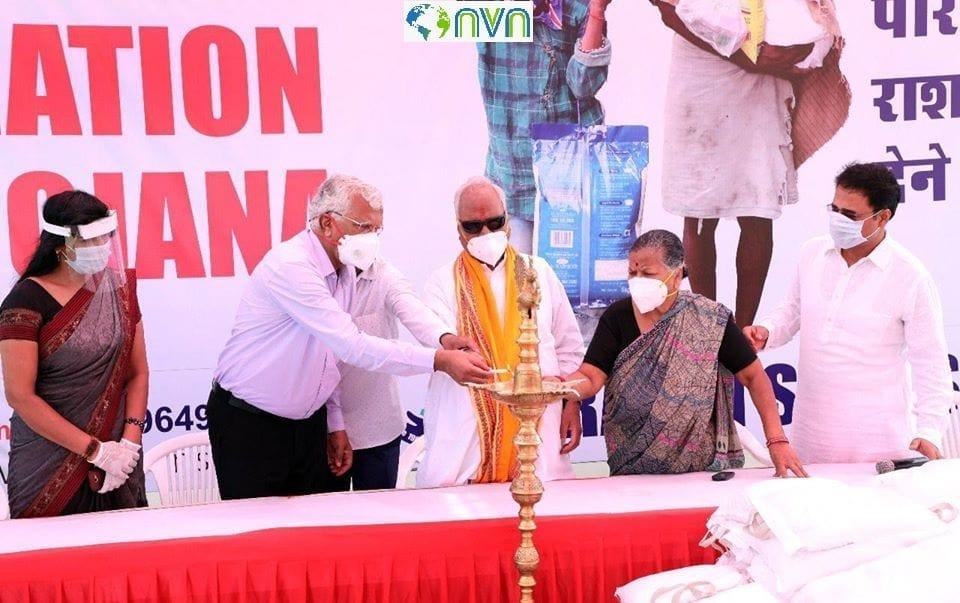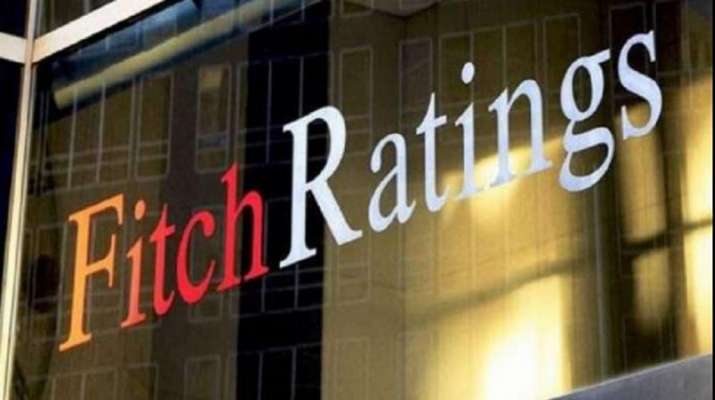Business
COVID-19 pandemic leaves the private healthcare sector in financial distress: FICCI-EY Study

- The COVID-19 pandemic has caused an adverse impact on the private healthcare sector resulting in 70 – 80% drop in footfall, test volumes, and 50-70% drop in revenue in last ten days of March; expected to sustain in the month of April with continued lockdown
- Many small hospitals and nursing homes, especially in tier-II and III cities, have been forced to close down their operations since their cash flows have dried-up
- Possible ramp-up will be gradual, taking at least three quarters for return to normalcy
- With an estimated impact of Rs. 14,000 to 24,000 Cr operating losses for the quarter, the sector would need liquidity infusion, indirect and direct tax benefits, and fixed cost subsidies from the Government to address the disruption
The already strained healthcare industry has been feeling the negative economic impact of COVID-19 with sliding bed occupancies and uncertainty of the burden of the virus. Yet, private hospitals and nursing homes, that constitute more than 60% of beds at 8.5-9 lac, 60% of inpatients and 80% of doctors in India, have been investing heavily over the past month in additional manpower, equipment, consumables, and other resources to ensure 100% preparedness for safety in the healthcare facilities and eventual treatment of patients, if needed.
While the government is taking cognizance of financial strain in sectors like hospitality, tourism, construction, little is being discussed regarding the distress felt by the private healthcare sector.
Dr. Sangita Reddy, President, FICCI and Joint Managing Director, Apollo Hospitals Enterprises, expressed that “the private healthcare sector in India has stood beside the government firmly to contain the virus and is deeply committed to the war against COVID-19. However, there is an urgent need to consider the healthcare industry’s triple burden viz. low financial performance in the pre-COVID state; a sharp drop in out-patient footfalls, diagnostic testing, elective surgeries and international patients across the sector is impacting cash flow; and the increased investments due to COVID-19; which has impacted the hospitals and laboratories like never before.”
The Prime Minister‘s call to the nation to honor the healthcare professionals has indeed been a morale booster. However, with dwindling revenues, government measures in terms of liquidity infusion, tax reliefs, and other waivers have become crucial for the survival of health services providers of the country.
Dr. Alok Roy, Chair- FICCI Healthservices Committee and Chairman, Medica Group of Hospitals shared that, “the financial distress accentuated by COVID-19 lockdown has forced several standalone and small nursing homes in tier II and III cities to down the shutters. Many others are at high risk of closing down soon since their cash flows have dried up, due to steep decline in patient footfalls, and they are facing liquidity crisis for even sustaining their staff salaries.”
In view of this, FICCI in partnership with EY, carried out a study of the economic impact of COVID-19 on the private healthcare sector. The report reveals that the private hospitals and laboratories, which were already facing multiple challenges, will witness an acute crisis due to COVID-19 and the subsequent lockdown, which has resulted in occupancy levels to fall to a mere 40% by late-March vis-à-vis pre-COVID occupancy levels of ~65-70%. This is expected to reduce even further. The impact on diagnostic labs is even worse, with almost 80% fall in the overall patient visits and revenue.
Mr. Kaivaan Movdawalla, Partner- Healthcare, EY India, while expressing concern, shared that “While the private sector stands fully committed to partner with the government as a national duty, it truly finds itself in a compelling situation to beseech the government for “differential” financial forbearance measures and to be supported well, in order to best utilize its capabilities and capacity to serve the nation in this hour of crisis”.
FICCI-EY report recommends government support through Liquidity infusion for the financing of the operating losses through short term interest-free/concessional interest rate loans to address the liquidity gap to the tune of Rs 14,000 -24,000 Cr.
Although the government has issued a notification for the release of government dues under CGHS and ECHS schemes to private hospitals, which is in the range of INR 1700-2000 crores, the payment is yet to be processed. Immediate release of such dues is crucial.
Other recommendations for providing urgent financial stimulus for the sector are:
- Indirect tax reliefs/ exemptions/ waivers like- recoup amount equivalent to ineligible GST credits paid on procurements for a stipulated period; Customs duty / GST exemption on essential medicines, consumables, and devices for treatment of COVID patients; Waiver or reduction of health cess on medical devices, Extension of time under the EPCG scheme, etc.
- Income tax benefits and deferment of statutory liability payments without interest, a penalty for a stipulated period (3-6 months)
- Rebate on the commercial rate of power for a stipulated period
About study:
FICCI and EY assessed COVID impact on the private hospital and diagnostic sectors basis the study of immediate impact in the last week of March 2020, post the nation-wide lockdown:
- Studied median performance across 91 private healthcare players (pre-COVID)
- Analyzed March week-wise revenue and occupancy levels of 10 hospitals and 5 diagnostic chains
- Discussion with 10 healthcare and diagnostic labs to understand the post-COVID impact
Notes to Editors
About FICCI
Established in 1927, FICCI is the largest and oldest apex business organization in India. Its history is closely interwoven with India’s struggle for independence, its industrialization, and its emergence as one of the most rapidly growing global economies.
A non-government, not-for-profit organization, FICCI is the voice of India’s business and industry. From influencing policy to encouraging debate, engaging with policymakers and civil society, FICCI articulates the views and concerns of industry. It serves its members from the Indian private and public corporate sectors and multinational companies, drawing its strength from diverse regional chambers of commerce and industry across states, reaching out to over 2,50,000 companies.
FICCI provides a platform for networking and consensus building within and across sectors and is the first port of call for Indian industry, policymakers, and the international business community.
About EY
EY is a global leader in assurance, tax, transaction, and advisory services. The insights and quality services we deliver help build trust and confidence in the capital markets and in economies the world over. We develop outstanding leaders who team to deliver on our promises to all of our stakeholders. In so doing, we play a critical role in building a better working world for our people, for our clients, and for our communities.
EY refers to the global organization and may refer to one or more, of the member firms of Ernst & Young Global Limited, each of which is a separate legal entity. Ernst & Young Global Limited, a UK company limited by guarantee, does not provide services to clients. For more information about our organization, please visit ey.com.
This news release has been issued by EY Services Limited, a member of the global EY organization that also does not provide any services to clients.


































